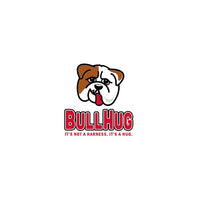Introduction
English Bulldogs are a popular breed known for their distinctive wrinkled faces and friendly personalities. However, like all dogs, they can suffer from allergies. If you suspect that your English Bulldog has allergies, it's important to understand the causes, symptoms, and treatment options available.
Causes of English Bulldog Allergies
Like humans, dogs can develop allergies to a variety of different things. Here are some of the most common causes of English Bulldog allergies:
- Food: Certain foods can trigger allergic reactions in dogs, including English Bulldogs. Common food allergens include beef, chicken, dairy, and wheat.
- Environmental allergens: Pollen, dust, mold, and other environmental allergens can cause allergic reactions in dogs.
- Fleas: Flea bites can cause itching and allergic reactions in some dogs, including English Bulldogs.
- Medications: Some medications can cause allergic reactions in dogs, just like in humans.
Symptoms of English Bulldog Allergies
The symptoms of English Bulldog allergies can vary depending on the cause of the allergy. Here are some of the most common symptoms:
- Itching: Itching is the most common symptom of allergies in dogs. Your English Bulldog may scratch or chew at their skin excessively, leading to skin irritation and even infection.
- Rash: Allergic reactions can cause a rash or hives to develop on your English Bulldog's skin.
- Sneezing and coughing: Environmental allergens can cause your English Bulldog to sneeze or cough excessively.
- Ear infections: Allergies can cause inflammation and infection in your English Bulldog's ears, leading to discomfort and even hearing loss.
- GI issues: Food allergies can cause vomiting, diarrhea, and other digestive issues in English Bulldogs.
Treatment Options for English Bulldog Allergies
If you suspect that your English Bulldog has allergies, it's important to take them to a veterinarian for a proper diagnosis. Here are some treatment options that your vet may recommend:
- Medications: Antihistamines, steroids, and other medications can help to relieve the symptoms of allergies in English Bulldogs.
- Immunotherapy: Immunotherapy involves exposing your English Bulldog to small amounts of the allergen over time, with the goal of decreasing their sensitivity to it.
- Elimination diets: If your English Bulldog has a food allergy, your vet may recommend an elimination diet to identify the specific allergen.
- Environmental control: If your English Bulldog is allergic to environmental allergens, such as pollen, your vet may recommend environmental control measures, such as air filters or frequent bathing.
Conclusion
Allergies can be a frustrating and uncomfortable problem for English Bulldogs and their owners. However, with proper diagnosis and treatment, it is possible to manage and even eliminate the symptoms of English Bulldog allergies. If you suspect that your English Bulldog has allergies, don't hesitate to take them to a veterinarian for help.


